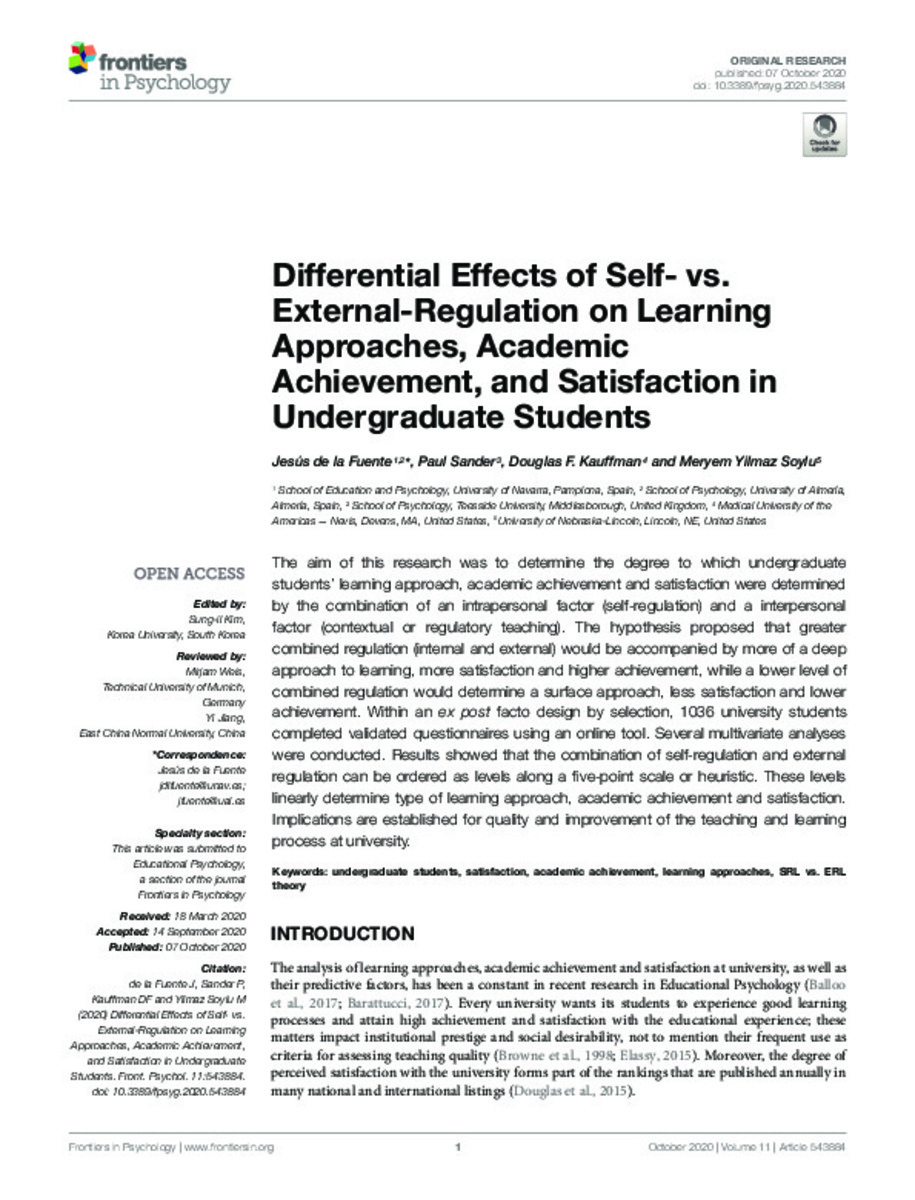Differential effects of self- vs. external-regulation on learning approaches, academic achievement, and satisfaction in undergraduate students
Palabras clave :
Undergraduate students
Satisfaction
Academic achievement
Learning approaches
SRL vs. ERL theory
Fecha de publicación :
2020
Cita:
Fuente-Arias, J. (Jesus) de la; Sander, P. (Paul); Kauffman, D. (Douglas); et al. "Differential effects of self- vs. external-regulation on learning approaches, academic achievement, and satisfaction in undergraduate students". Frontiers in Psychology. 11 (543884), 2020, 1 - 20
Aparece en las colecciones:
Estadísticas e impacto
0 citas en

0 citas en

Los ítems de Dadun están protegidos por copyright, con todos los derechos reservados, a menos que se indique lo contrario.











